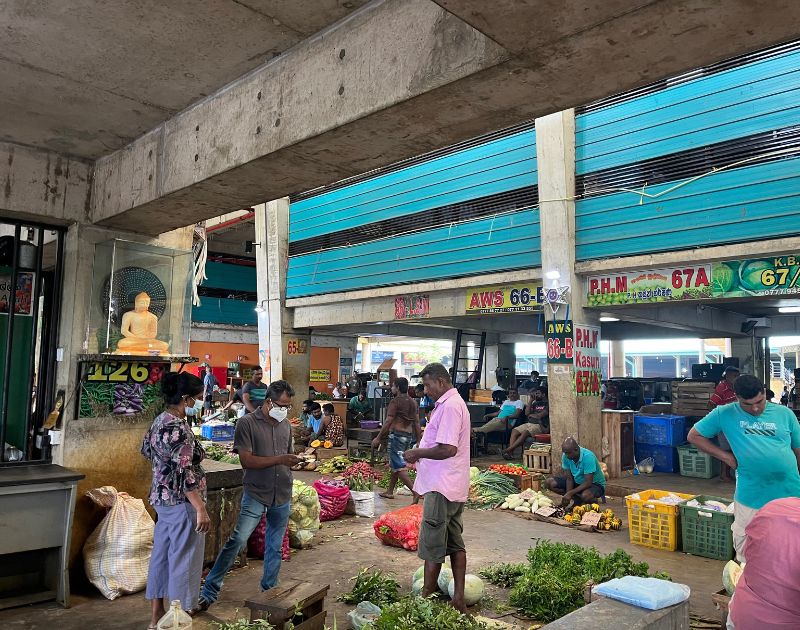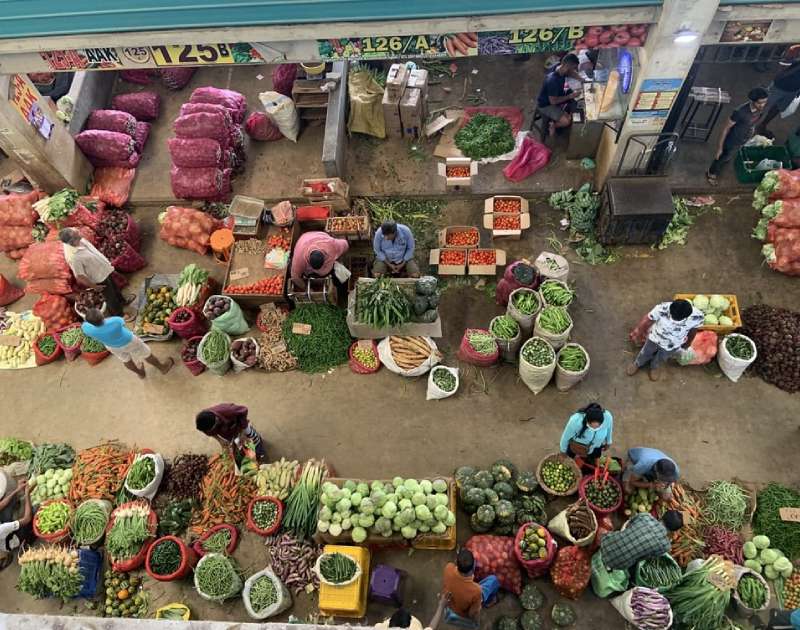
- Home
- Colombo Urban Lab
- Living Off-Grid Food and Infrastructure Collaboration
The Living Off-Grid Food and Infrastructure Collaboration (LOGIC) is funded by United Kingdom Research and Innovation Global Challenges Research Fund, and is a collaboration between the Institute of Development Studies; the African Centre for Cities, University of Cape Town;the Indian Institute of Human Settlements, Bangalore; Colombo Urban Lab and the University of Ghana, Accra. As part of the collaboration which runs from 2020 – 2024, the research focuses on five cities which represent different types of urban environment: Tamale, Ghana, Mossel Bay, South Africa, Epworth, Zimbabwe, Bangalore, India and Colombo, Sri Lanka.
In Colombo, we are exploring how access to infrastructure such as water, electricity, cooking fuel, and transport determine access to nutrition in two working class poor settlements in Colombo – a watte (tenement garden) and a UDA-built high rise housing complex. Our fieldwork was conducted at three different levels – households, neighbourhood vendors and wholesale markets from 2021 – 2023 to understand the nexus between infrastructure and the household food plate.
In Colombo, our research shows that infrastructure plays a key role in determining diets of urban working class poor households. With the onset of COVID-19 lockdowns and the subsequent economic crisis – families are impacted by increasing prices of utility bills, cooking fuel, transport, to name a few. This is alongside increased cost of living and competing expenses. As a result, families are eating less, prioritising food that cooks faster or can be eaten without accompaniments. This has changed what households buy for consumption, how it’s cooked and what utensils are used to make it. This comes alongside a host of coping strategies that families have had to undertake to manage the impact from a multitude of shocks. Click Here for an overview of how Sri Lanka’s crises have impacted Colombo’s working class poor over the last four years and the ways in which families have had to respond, just to survive.
Our research has also shown us the role that infrastructure plays across the food value chain in Colombo. Street and mobile vendors that households mostly buy their fresh produce from rely strongly on public infrastructure such as public taps to keep fruits and vegetables clean and fresh and for the vendor’s own hydration, and street lamps to conduct their business. Separate utility bill payments are expensive for vendors who prefer to use existing infrastructure, with some choosing to conduct business from their home where they have existing connections.
At a market level the relocation of public markets from Pettah to Peliyagoda has impacted the business of vendors. The lack of public transport to the Peliyagoda markets has seen a reduction in foot traffic and customers, increased rent, lack of adequate storage facilities to name a few. These failings in infrastructure provisioning determine what produce vendors are able to sell, along with the quantity of goods and the price. Fluctuations and sensitivities to infrastructural shocks at the market level has an effect on the food plates of urban working class poor families and determines what is bought for the household.
View Timeline
Best viewed on Google Chrome.
Read about our partners’ findings across different cities.
Latest research and writing by CUL


